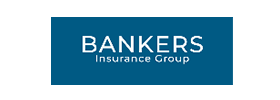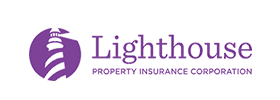Caregivers Insurance
Caregivers Insurance helps protect home care providers from risks like client injuries, negligence claims, or legal expenses. Whether you’re an independent caregiver or run a small home care team, the right insurance offers peace of mind and ensures you’re covered in case of accidents or lawsuits.
Choose the right coverage from trusted insurance providers.
































Why do caregivers need insurance?
As someone who has worked closely with families, I know how much tension can arise when you’re taking full care of a family’s loved one. Even when you’re providing the best possible care in a home setting, unexpected accidents can happen. That’s why having caregiver insurance is so important, it can help cover costly risks like client injuries, claims of negligence, or even lawsuits.
What types of business insurance and bonds do personal care providers need?
These insurance policies cover the most common risks of caregiving.
Business owner’s policy
A BOP combines general liability and property insurance, offering business owners affordable coverage. Ideal for contractors and construction companies, it protects against injuries, theft, and legal requirements, helping you recover while maintaining peace of mind.
Under this plan
Customer injuries
Damaged customer vehicles
Damaged business property
Professional liability / medical malpractice
Also called malpractice insurance, it covers legal costs if a healthcare provider is sued for negligence, causing injury.
Under this plan
Incorrect diagnoses
Accusations of negligence
Mistakes or oversights
Commercial auto insurance
Required in most states for business-owned vehicles, this insurance covers accident costs involving your healthcare business vehicle.
Under this plan
Weather damage
Vandalism and theft
Car accident repair costs
Cyber insurance
Protects healthcare businesses from data breaches and cyberattacks, and can be bundled with a BOP or general liability policy for cost savings.
Under this plan
Fraud monitoring services
Data breach investigations
Customer notification expenses
General liability insurance
General liability insurance protects your business from third-party injuries, lawsuits, or property damage. It’s often needed to meet state or lease requirements, giving contractors and construction companies peace of mind and support to recover from risks like theft or accidents.
Under this plan
Accidental vehicle damage
Customer injuries at a repair shop
Slander and other advertising injuries
Worker’s compensation insurance
Workers’ compensation insurance is required by most state laws for businesses with employees. It covers injuries at work, helps contractors and companies recover from accidents, and provides peace of mind beyond what health insurance may offer.
Under this plan
Employee medical expenses
Partial wage reimbursement
Lawsuits over employee injuries
How much does business insurance cost for caregivers?

The cost of business insurance for caregivers depends on many factors, and as a healthcare worker myself, I’ve seen how different roles bring different risks. A personal care aide may pay less than a registered nurse or home healthcare provider, especially when medical care is involved.
The more complex the services or equipment, the higher the premiums may be. Things like your business income, the size of your operation, the level of care you offer, such as meal preparation, skilled nursing care, or respite care, along with the types of insurance you’ve purchased, all impact the final cost.
Also, your policy limits and deductibles play a big part. From my experience, even the location of your business property can make a difference.
How do I get caregiver business insurance?
It’s easy to get caregiver business insurance when you have your information ready. As someone who’s helped others through the process, I can say that once you gather your basic facts, like your revenue and number of employees, the rest moves fast. You’ll complete a free online application, then compare quotes and choose the best policies. After that, you just pay and download your certificate. Companies like Eagle Nation make it smooth with their three steps, and their licensed agents work with top-rated U.S. providers to match you with the right coverage, whether you hire others or work independently in home care, elder support, or special needs.
Two ways to start your coverage

Quotes online

Talk to an agent
Verified business insurance reviews
Hear from customers like you who purchased small business insurance.
"Getting caregiver insurance was one of the best decisions I made for my home care business. It gave me peace of mind knowing I’m protected if anything goes wrong during a visit."
FAQs about Caregivers' Insurance
As caregivers, we often face unique risks depending on the type of work we do. I remember early in my career when a policy didn’t fully cover the property damage caused during an in-home visit. That experience taught me the value of additional protection. A good insurance plan can be modified to cover a wide range of situations—whether it’s malpractice claims, legal cases, or injuries caused by needles or sharps during daily tasks. With the rise of virtual care, having telemedicine or telehealth coverage for inadequate or harmful remote services is just as critical.
To stay truly protected, I’ve learned to regularly consult a licensed insurance agent and find out about any exclusions or liability gaps. For example, HIPAA defense is essential in case you’re accused of having violated the Health Insurance Portability and Accountability Act. It’s also wise to add caregiver bonds, which can protect against theft, fraud, or acts conducted by dishonest employees. Depending on your setup, whether you're an independent provider or manage a small home health team, making sure your coverage includes all relevant types is key to long-term peace of mind.
Yes, caregivers absolutely should consider carrying medical malpractice insurance, even if they are non-medical professionals and not required to by state laws. This type of insurance plays a vital role in risk management, especially for those working in home health settings.
There are several reasons why it’s essential:
- Your employer may require it, especially in a healthcare facility or when signing contracts to provide in-home care to clients.
- Your employer's coverage may be limited, offering protection only in narrow situations or for smaller claims. Having your own policy ensures you get legal representation tailored to your needs.
- Malpractice lawsuits are costly. Without coverage, you may face attorney's fees and other legal expenses out of pocket. Having your own insurance brings peace of mind, allowing you to focus on caregiving, knowing you’re financially protected.
Thankfully, affordable options exist. Services like Eagle Nation allow caregivers to compare quotes and choose a plan that suits their budget and specific needs with ease.
Occurrence-based and claims-made policies offer different types of coverage, and knowing the difference is important for caregivers. Most general business insurance, like general liability, is occurrence-based, meaning it covers incidents that occur during the policy term, even if the claim is filed after the policy ends.
However, malpractice insurance for home health aides is typically claims-made. This means you must keep the policy active to get protection. If you cancel or let the policy lapse, even incidents that happened while it was active might not be covered. To help with this, you can set a retroactive date to include past events or add tail coverage to protect against claims filed after you stop working or retire.
The need for licensing or certification for caregivers depends on the state where they live. States like New York mandate a 40-hour training program approved by the Department of Health, while places like Arizona and Ohio might not require any formal training for private-pay work.
Even if not required, earning a certification has clear benefits. It can help caregivers qualify for more jobs, possibly with better pay. Some roles may expect you to complete training, gain practical experience, pass a licensing exam, submit an application, and take continuing education courses. In any case, certification boosts your credibility and job prospects in the caregiving industry.
Top healthcare professionals we insure
Don't see your profession? Don't worry.
We insure most businesses.
